DEC 2022. Blues Vol 38 No. 12
- Text
- Tina jaeckle
- Jessica jones
- Rex evans editor
- Michael barron publisher
- Iacp officer of the year
- Officer thadue holloway
- Christmas gift guide
- Police news
- Bluespolicemagazine
- Largest police magazine
- Holloway
DARYL LOTT daryl’s
DARYL LOTT daryl’s deliberations Christmas Time Perspective There was one Christmas that was different than all the others in our history. The Christmas of 1941 was the one that wins the dubious prize for sheer uncertainty and frightfulness. America had been mauled by Japan in a diabolical surprise attack at Pear Harbor on December 7th—just 18 days before Christmas. The Philippines were under siege and it was all but certain that American forces were going to be captured by the notoriously cruel Japanese army. The Pacific Fleet was in disarray and the sunken and still smoking battleships sitting on the Hawaiian harbor sea bottom could not provide a quick response. The Atlantic fleet was being hammered by German U-boats in ocean battles that left merchant ships blazing within sight of coastal cities like New York and Boston. The indispensable life line of supplies between America and England was very much endangered. Many lives were being lost in the rough cold seas of the North Atlantic. In a bold move, Prime Minister Winston Churchill made the perilous sea journey from London to Washington in order to visit President Franklin D. Roosevelt. The men had talks regarding a common war strategy to defeat Germany and Japan. There was a feeling that the Christmas and New Year holidays should be cancelled. This was not as extreme as it might sound to our modern ears. The United States had to gear up wartime production in what was to be a fight with very powerful adversaries who wanted to destroy freedom around the world. We all know that the Christmas and New Year holidays may only be two days on the calendar, but those are normally “dead weeks” for most business and government operations. Many private and public sector executives did not want to lose those valuable weeks of initial productivity. England had already been at war for over two years and their production capacity was at 100%, but the British people were at the end of their rope. Anything that would delay the much needed supplies and support would cost British lives. American productivity had to be quickly geared up into overdrive. Lives depended on it. As Roosevelt pondered the unthinkable—cancelling Christmas, an executive spoke up. “The holiday isn’t for us. It’s to honor the Christ Child. It’s His holiday—not ours.” Exactly. Roosevelt ordered that federal holidays not be cancelled. In the longer term, the people would DARYL LOTT be energized by honoring God. On Christmas Eve, Roosevelt and Churchill addressed the freedom loving peoples of the world from the balcony of the White House. We would join the fight against evil until our last energy was spent. The men then ceremonially lit the White House Christmas tree. The brotherhood of free peoples would engage a ruthless and determined enemy. Roosevelt and Churchill saw a much needed opportunity to get our allied efforts off on the right foot. The notion that our countries needed each other was no longer simply a theory. In addition to the losses America suffered in the Pacific, the British were being handed some cruel defeats as well. “Fortress Singapore” was considered impregnable by sea invasion as it was on the southern tip of the Malay Peninsula. However, the Japanese figured if they could land much farther north, then their troops could, believe it or not, ride bicycles south and defeat the British army at Singapore. Japanese troop ships were dispatched to invade the Malay Peninsula and the soldiers inside would race their bicycles to the British back door. The British countered the move by sending a battleship, “HMS Prince of Wales”, and a cruiser, “HMS Repulse”, to destroy the Japanese troop ships at sea. These most powerful of British warships became the first capital ships in history sunk in the open ocean by aircraft alone. The British Empire was dealt a staggering blow that weighed heavily on the minds of Roosevelt and Churchill (both were Navy men at heart). What to do! The devastating losses that both nations suffered in December highlighted the reality that the war was going to be long and hard. Roosevelt and Churchill knew that the death toll would far exceed the 15 million of the Great War. They knew that “Happy New Year” was not going to be appropriate for the foreseeable future. They knew that the possibility of America and the British Empire losing the war was conceivable. Allied victory was not inevitable. What could they do to start this joint endeavor? Roosevelt and Churchill happened to be members of the same Protestant Church—the Church of England (as it is called in England) and the Episcopal Church (as it is called in America). The men reasoned, like George Washington before them, that anything they did without God’s Providential leadership would be fruitless. All of our citizens, young and old, black and white, healthy and infirm, Jew and Gentile, had to be engaged in the initial response. New Year’s Day 1942 would be, by Presidential Decree, a National Day of Prayer. The idea was simple, but genius. If the war was going to be an existential conflict between good and evil, then good people were going to have to pray. The prayer wasn’t the usual plea for forgiveness and remorse for failings. The prayer, according to the president and prime minister, was a prayer to make our nations worthy of being called good. Our nations had to ask God for his blessing of making us worthy to be on His side. The two leaders prepared themselves and went to George Washington’s own Anglican/ Episcopal church on the Day of Prayer. They sat down in the general’s own pew and got right with God. They asked their Heavenly Father to take their nations’ heartfelt responses to a monstrous evil and make them worthy to be called good. American and British citizens echoed the prayers of their respective leaders. Our parents and grandparents wanted to be counted as worthy to fight evil in the name of Goodness. They did not ask the Father to take the bitter cup of war from their lips; they only wanted to be worthy of the struggle. Perhaps that’s why they have been called the “Greatest Generation.” The Americans and the British would never forget the Christmas of 1941– it was fraught with anxiety. Perhaps in this time of anxious uncertainty, we should pray that we are worthy to help our neighbors in need. Maybe, just maybe, we should pray that we are worthy to give our neighbor a cup of water in His name. I believe that is what my grandparents did—and yours did, too. 112 The BLUES The BLUES 113
- Page 1 and 2:
The BLUES 1
- Page 4:
FOUNDED IN 1984 OUR TEAM MICHAEL BA
- Page 8:
FROM THE GUEST EDITOR’S DESK Noti
- Page 12:
READERS SPEAK OUT Throwing Down-Bal
- Page 16:
AROUND THE COUNTRY CABO ROJO, PUERT
- Page 20:
AROUND THE COUNTRY PUNTA GORDA, FL.
- Page 24:
AROUND THE COUNTRY LAS ANGELES, CA
- Page 28:
BACK THE BLUE AWARD FLORIDA HIGHWAY
- Page 32:
AROUND THE COUNTRY TAMPA BAY, FL. N
- Page 36:
AROUND THE COUNTRY WASHINGTON, DC.
- Page 40:
AROUND THE COUNTRY HAMILTON CNTY, T
- Page 44:
concealed weapon on him while handc
- Page 48:
We’ve all heard the saying, “Wh
- Page 52:
JAY LENO HITS POLICE CAR Leno was e
- Page 56:
IACP, POLICE OFFICER of the YEAR OF
- Page 60: The officer used his Taser, and Low
- Page 64: Family Matters His wife Amanda Holl
- Page 68: Firearms and Tactical Equipment for
- Page 72: Thin Blue Line Travel Tumbler This
- Page 76: 6831 Broadway, Pearland, Texas 7758
- Page 80: Kickass Rides for Kids Ride-on elec
- Page 84: DECEMBER 1-2 School Resource Office
- Page 88: HONORING OUR FALLEN HEROES MARINE I
- Page 92: The Best of the Best The very first
- Page 96: ing that room. He never said a word
- Page 100: It was late afternoon before I fina
- Page 104: 5. CAN-AM MAVERICK X3 X RS TURBO RR
- Page 108: 108 The BLUES The BLUES 109
- Page 114: NOT SO BRIGHT AWARD lig ht bul b aw
- Page 118: DR. TINA JAECKLE blue mental health
- Page 122: SUPPORT THE OFFICER DOWN MEMORIAL P
- Page 126: ADS BACK IN THE DAY 126 The BLUES T
- Page 130: Your Source for Law Enforcement Pro
- Page 134: CAP Fleet is an emergency vehicle u
- Page 138: DANA SAFETY SUPPLY Dana Safety Supp
- Page 142: Key Management & Key Control Produc
- Page 146: Supporting Law Enforcement in TEXAS
- Page 150: NOW HIRING LE job posit ions Tx. Co
- Page 154: 154 The BLUES The BLUES 155
- Page 158: austin officers austin dispatch 158
- Page 162:
BECOME A BAYTOWN PATROL OFFICER! ST
- Page 166:
Cuero Police Department Now Hiring
- Page 170:
Forney ISD Police Department NOW HI
- Page 174:
174 The BLUES The BLUES 175
- Page 178:
WE ARE HIRING! BENEFITS • Free ba
- Page 182:
Welcome Mesquite PD 182 The BLUES T
- Page 186:
Memorial Villages Police Department
- Page 190:
MAKE A DIFFERENCE IN YOUR COMMUNITY
- Page 194:
PORT HOUSTON POLICE DEPARTMENT WE A
- Page 198:
City of Wylie Police Department OFF
- Page 202:
202 The BLUES
Inappropriate
Loading...
Mail this publication
Loading...
Embed
Loading...

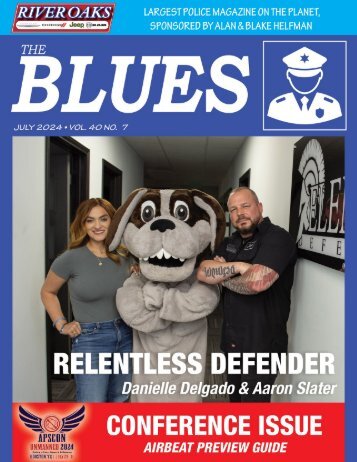
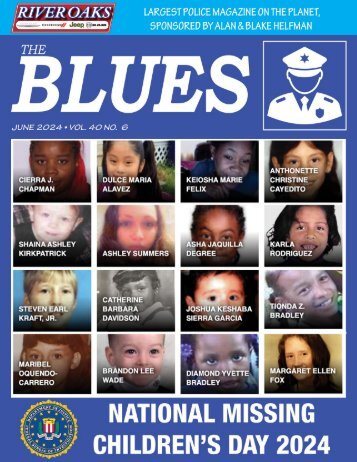
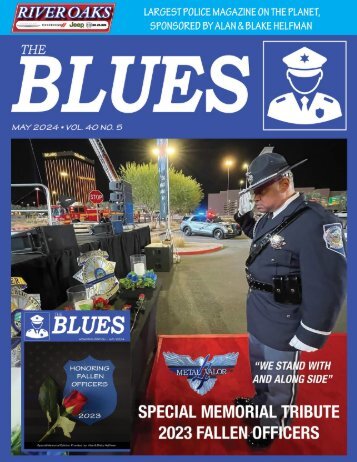
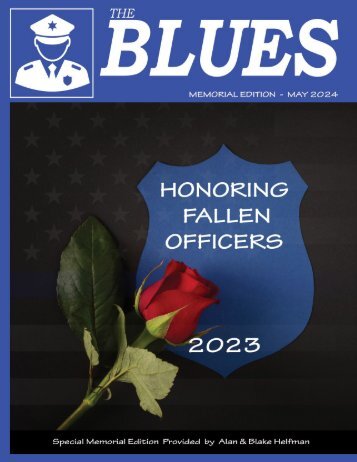
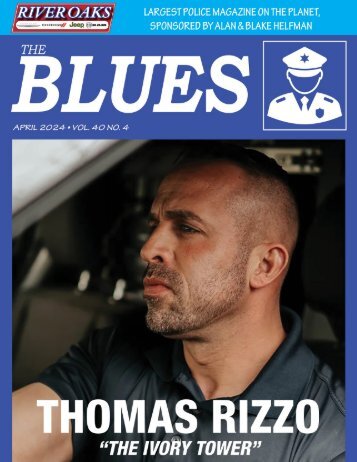
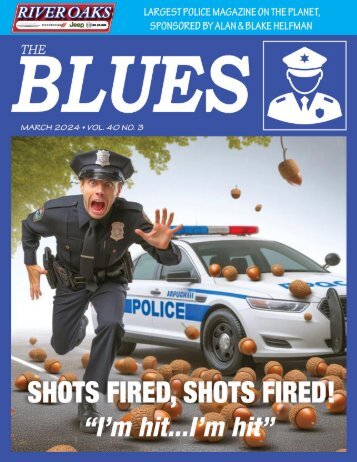

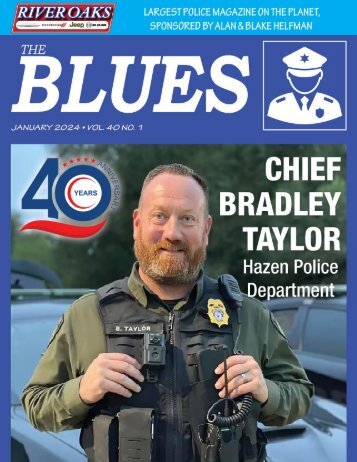
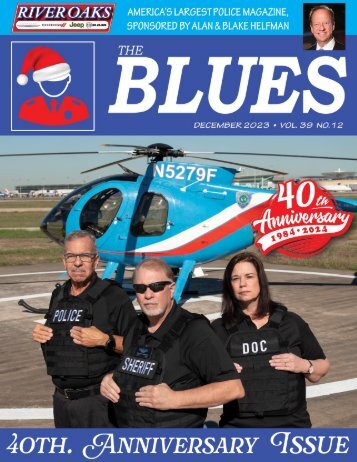
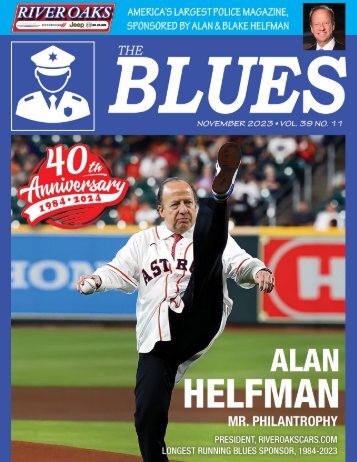
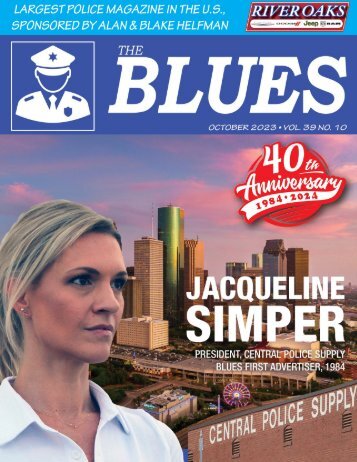
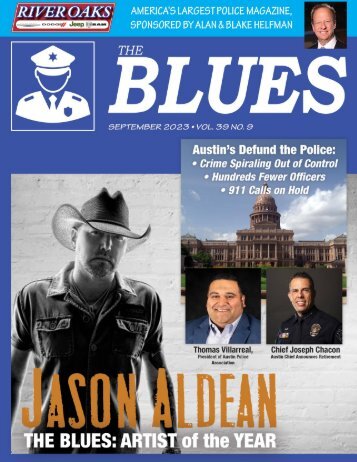
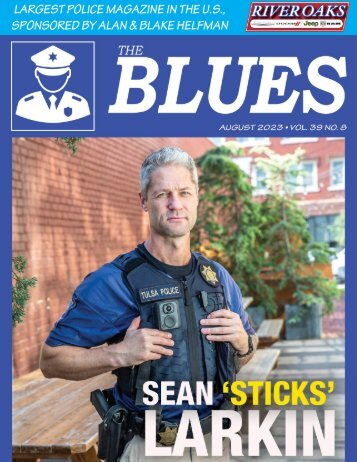
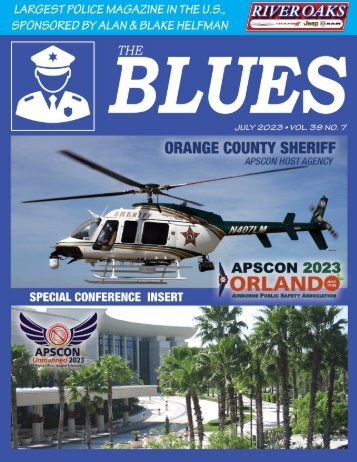
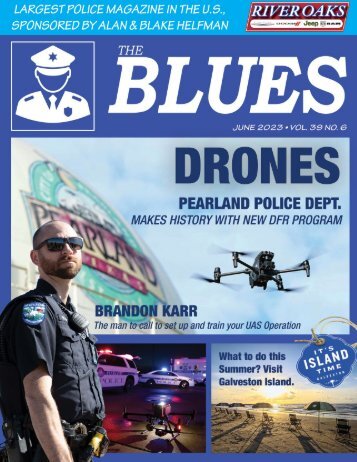
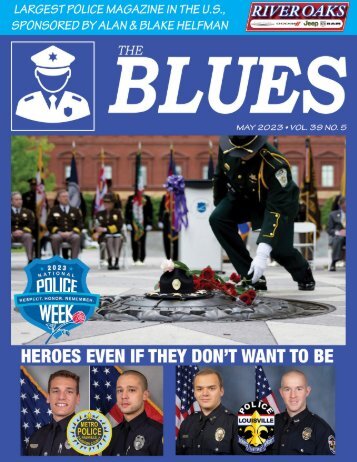
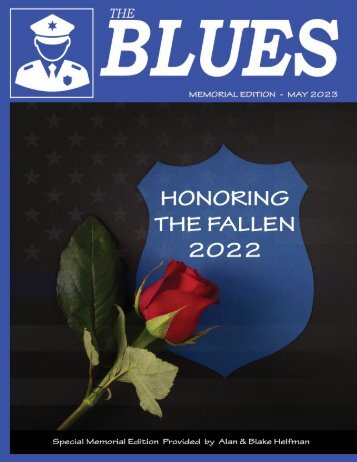
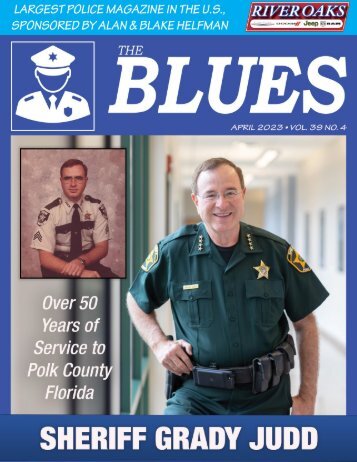
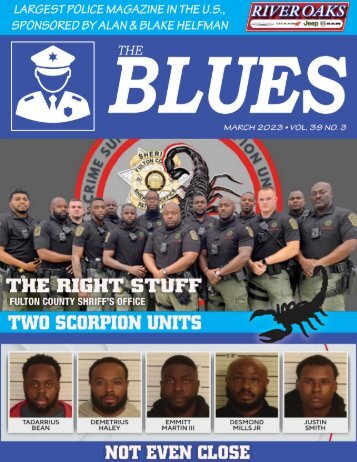
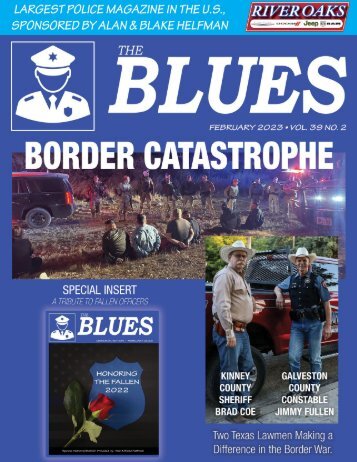
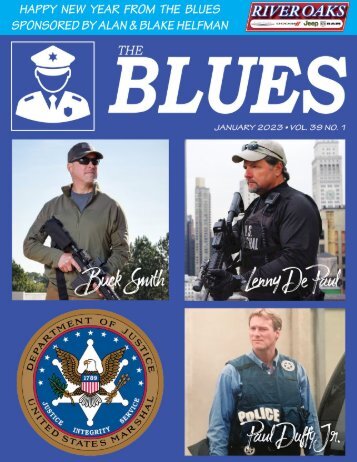

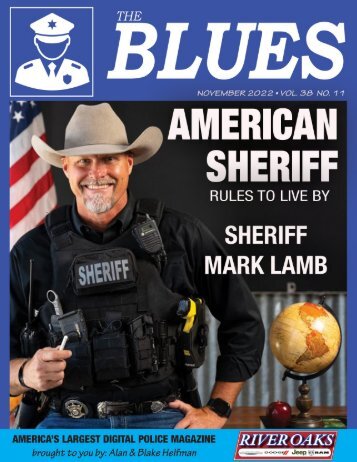
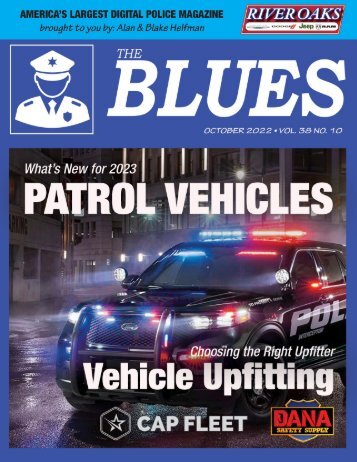
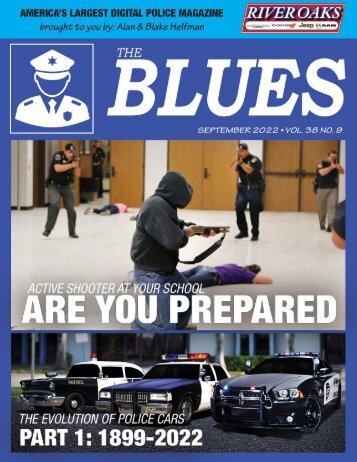
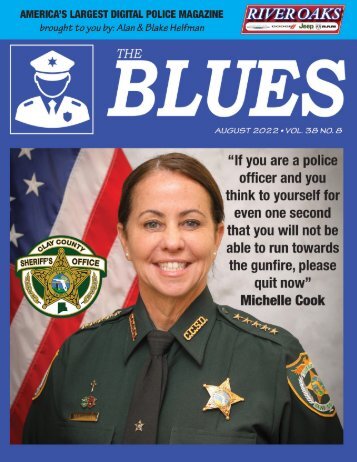
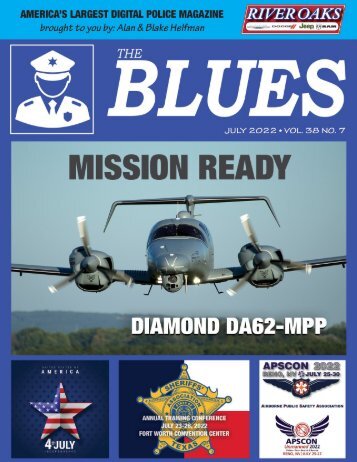
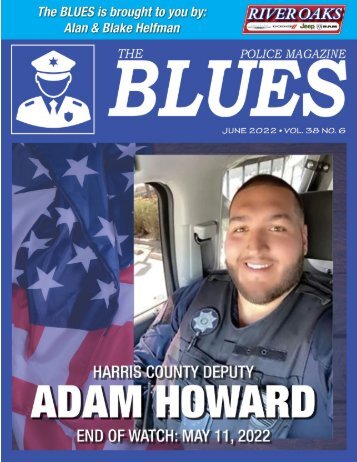
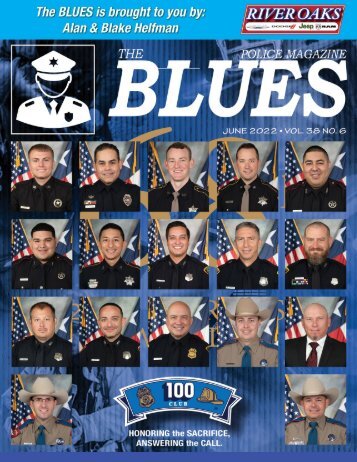
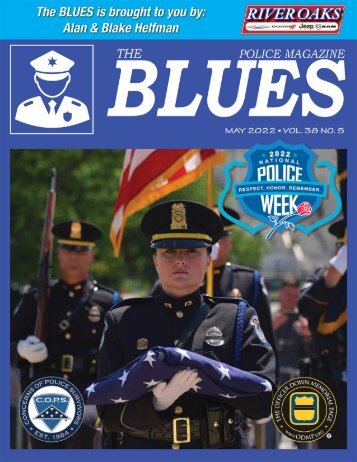
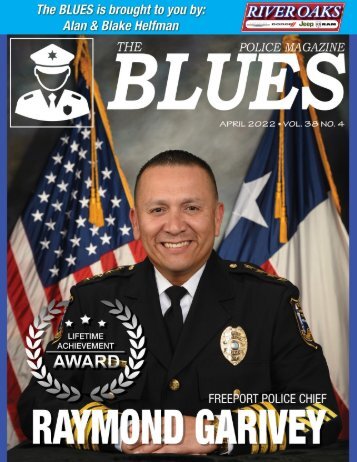
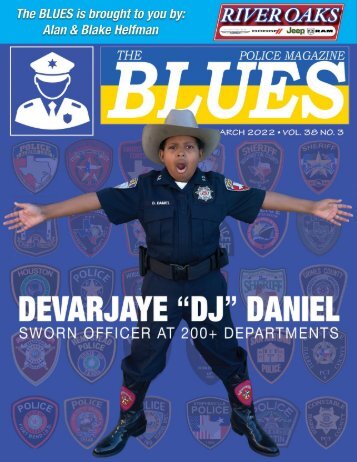
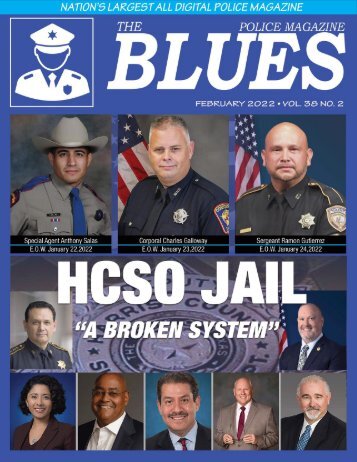
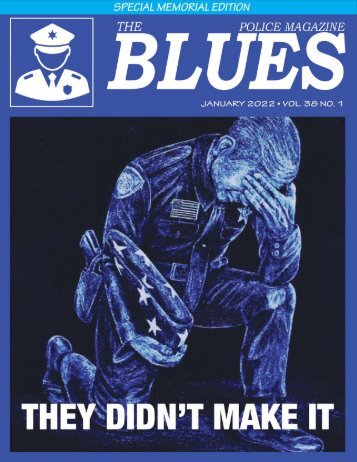
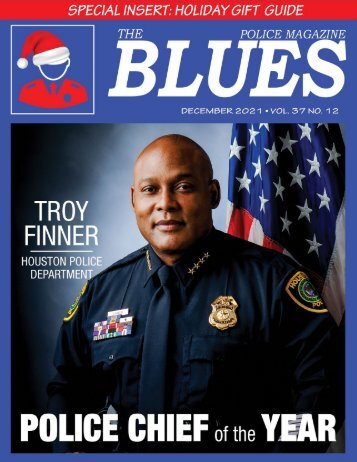
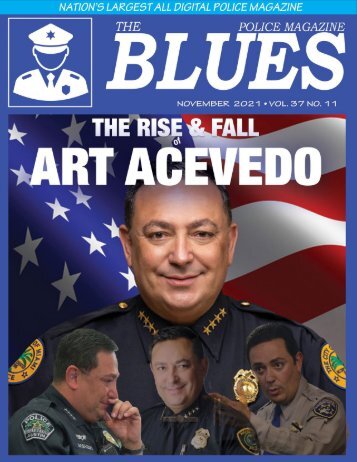
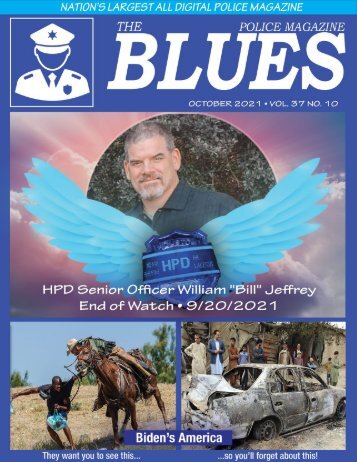
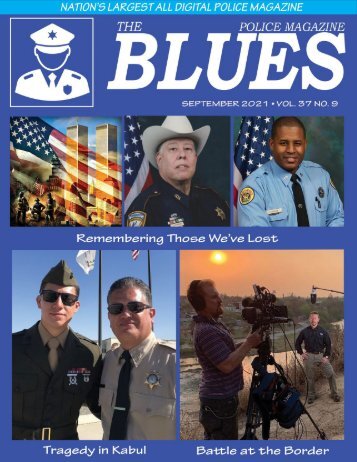
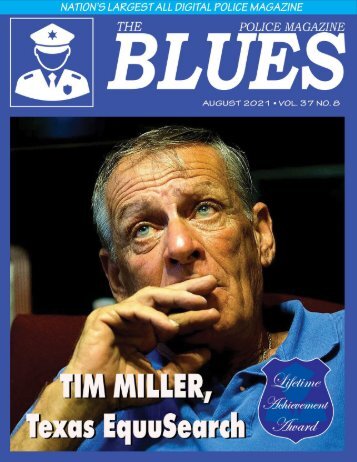
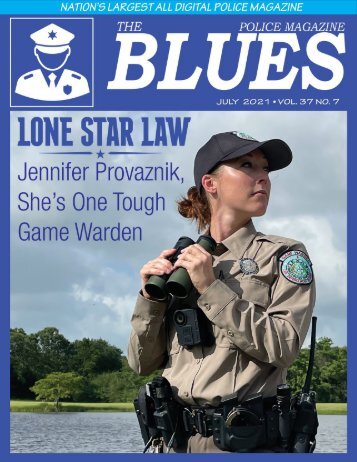

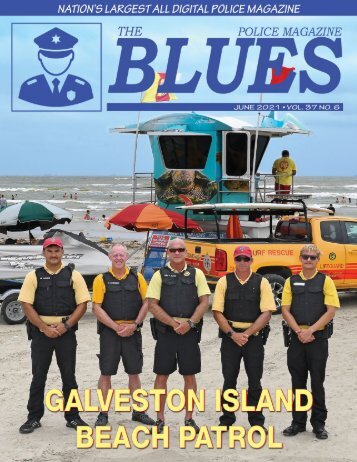

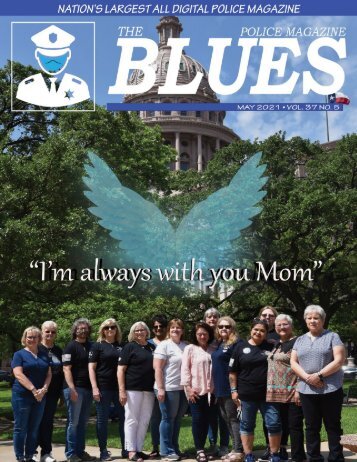
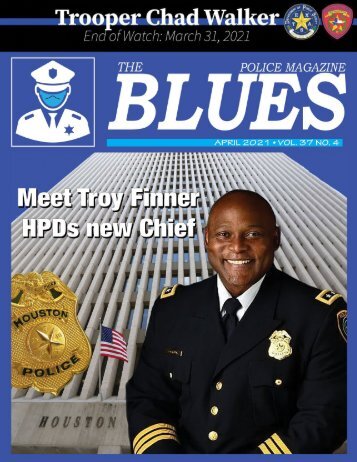
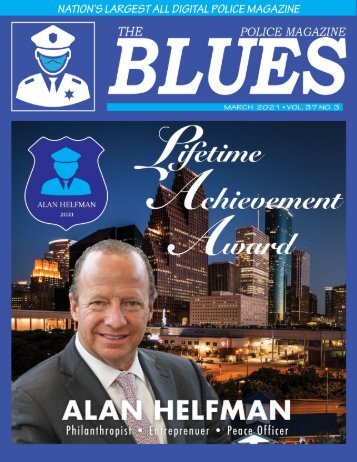
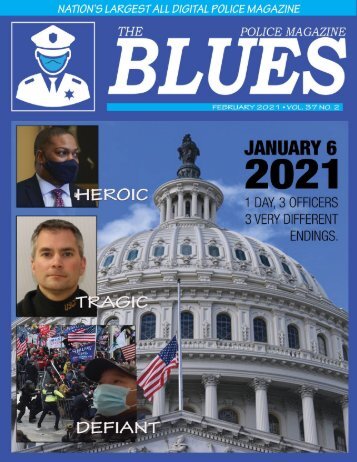

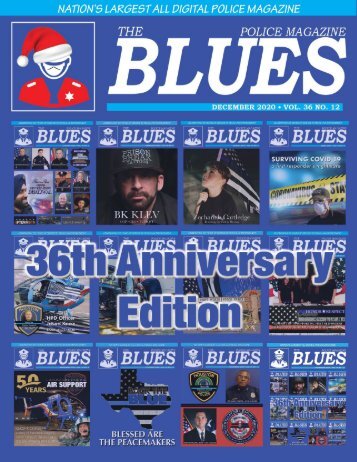
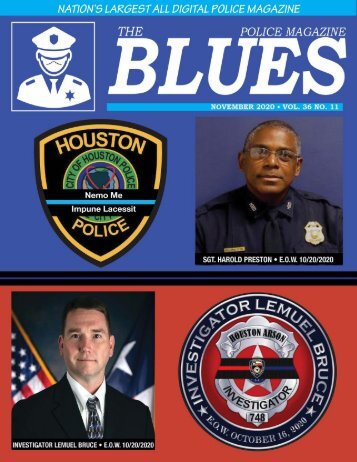
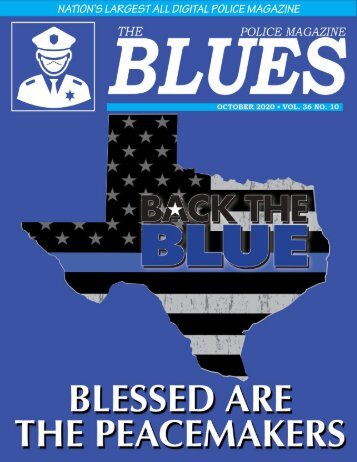
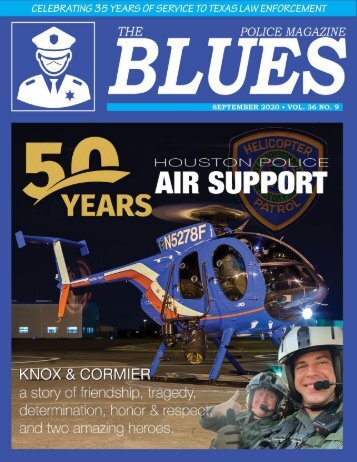
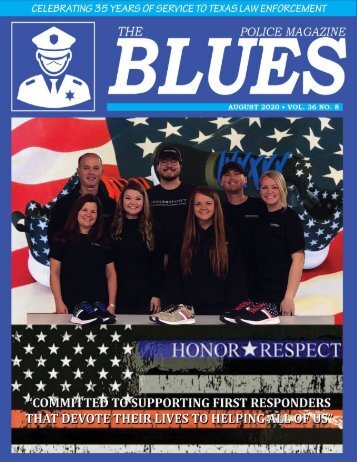
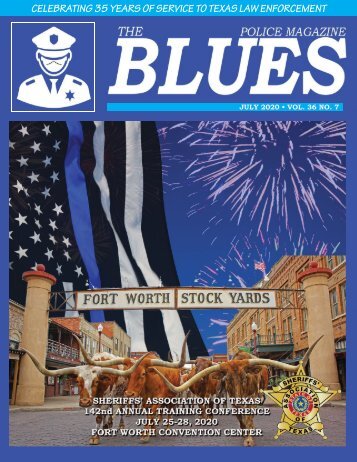
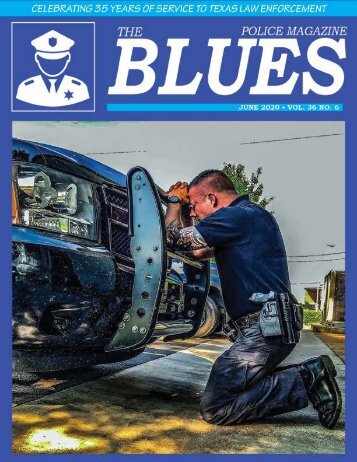
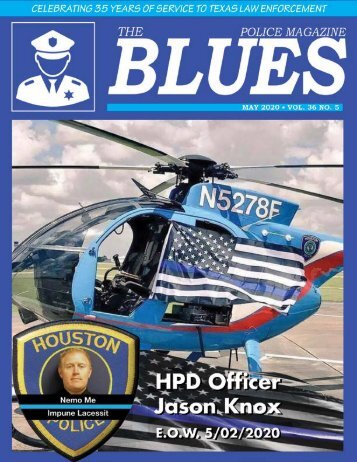
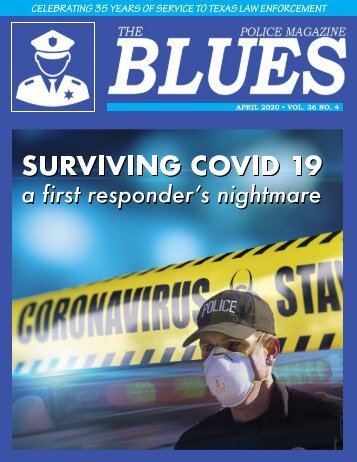
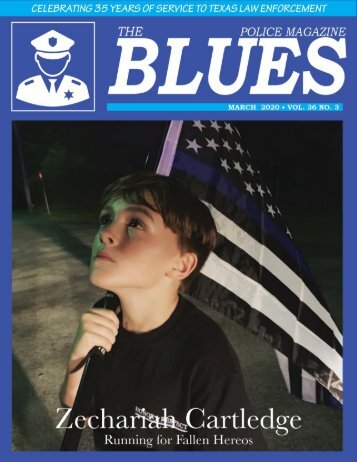
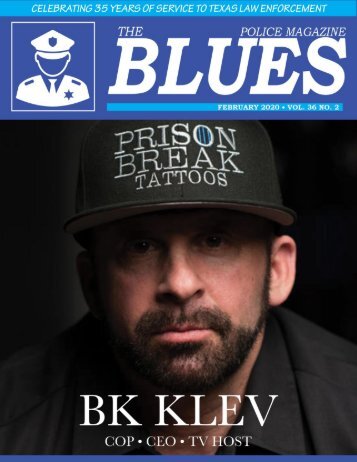
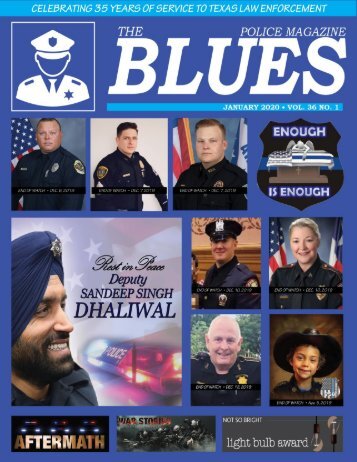
Follow Us
Facebook